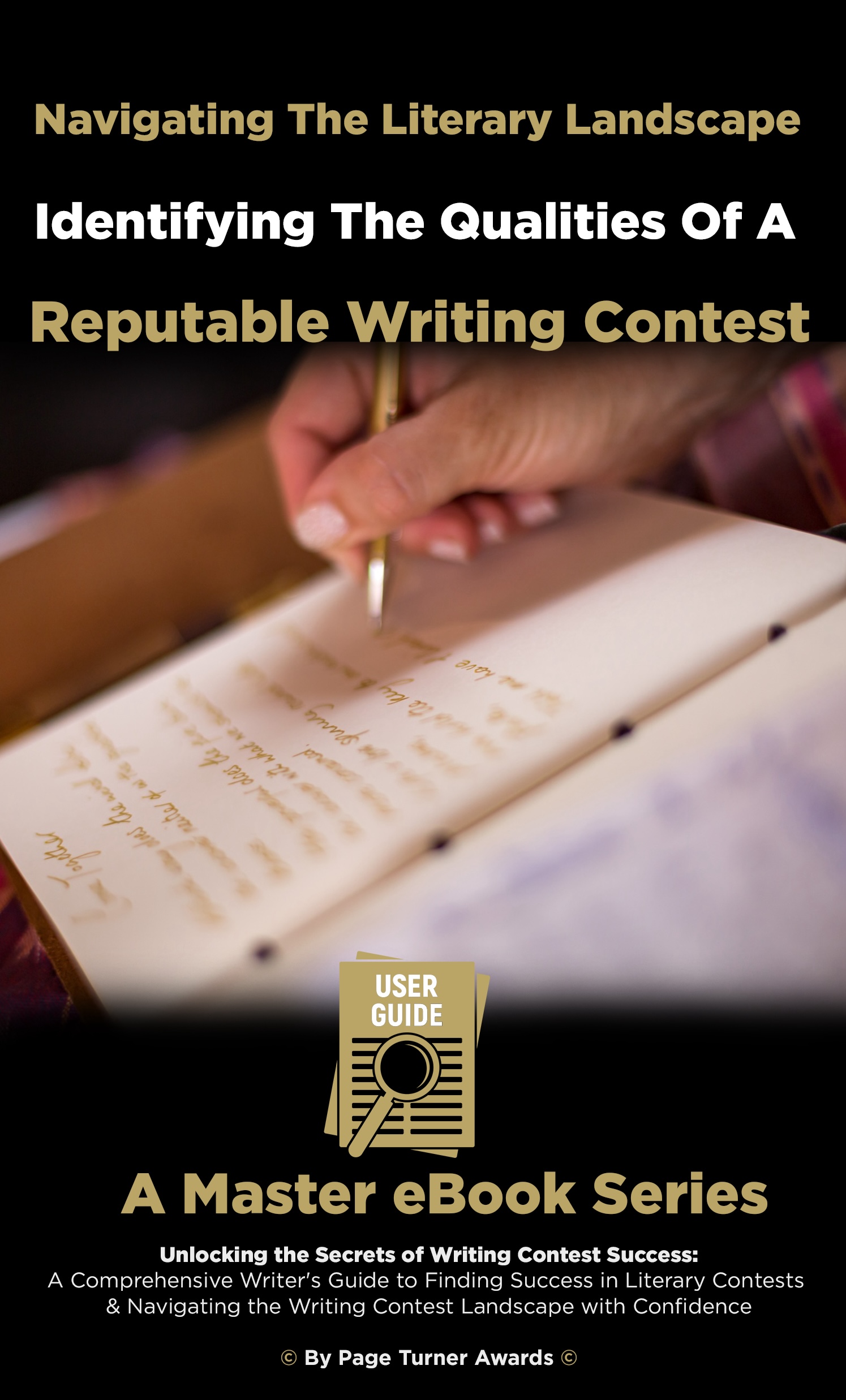
Navigating The Literary Landscape: Identifying The Qualities Of A Reputable Writing Contest
In the vibrant realm of writing, contests serve as beacons, attracting aspiring and established authors seeking recognition, feedback, and opportunities to advance their literary endeavors.
However, amidst the vast sea of competitions, it's crucial to discern the genuine from the fraudulent, ensuring you invest your time, effort, and creativity in worthwhile opportunities.
Here's a comprehensive guide to identifying the characteristics of a reputable writing contest and navigating the literary landscape with confidence.
1. Reputation and Integrity:
Established Track Record: Reputable contests possess a proven history of success, attracting a significant number of participants and offering substantial prizes or opportunities.
Prominence and Recognition: Renowned contests often receive media attention and recognition from literary organizations, further establishing their credibility.
Transparency and Openness: Transparent contests clearly outline their submission guidelines, judging criteria, and prize structure, fostering trust among participants.
2. Genre and Theme Focus:
Clear and Specific Categories: Reputable contests offer well-defined categories that align with the specific genre or theme of the competition, ensuring that entries are relevant and aligned with the contest's objectives.
Variety of Genres and Themes: A diverse range of genres and themes demonstrates the contest's commitment to inclusivity and caters to a wider audience of writers.
Openness to New Voices: Reputable contests encourage submissions from emerging writers, providing a platform for fresh perspectives and undiscovered talent.
3. Judging Panel Experience and Expertise:
Established Literary Figures: Renowned contests feature a panel of judges with significant literary credentials, including published authors, editors, and industry professionals.
Diversity of Perspectives: A diverse judging panel brings a range of experiences and expertise to the evaluation process, ensuring fair and well-rounded assessments.
Transparency of Judging Process: Reputable contests provide clear information about the judging process, including the criteria used and the method of evaluation.
4. Submission Process and Requirements:
User-Friendly Submission Platform: Easy-to-navigate submission platforms streamline the process for participants, allowing them to submit their work seamlessly.
Fair and Reasonable Submission Fees: Reputable contests maintain reasonable submission fees that are proportionate to the value of prizes or opportunities offered.
Clear Deadlines and Guidelines: Clear and concise deadlines and guidelines ensure transparency and prevent confusion among participants.
5. Prizes and Opportunities:
Competitive and Meaningful Prizes: Reputable contests offer substantial prizes or opportunities that align with the caliber of submissions and provide meaningful recognition for winning entries.
Variety of Prizes and Opportunities: A range of prizes and opportunities caters to different levels of experience and aspirations, ensuring that participants of varying backgrounds are incentivized to participate.
Tangible Benefits: Prizes should extend beyond mere recognition, offering tangible benefits such as publication, representation, or financial rewards.
6. Promotion and Recognition:
Active Social Media Presence: Reputable contests actively promote their events through social media platforms, reaching a wider audience and attracting potential participants.
Media Coverage and Announcements: Well-established contests receive media coverage and make announcements about winners and finalists through reputable outlets, amplifying their reach and credibility.
Engaged Online Community: Strong online communities foster interaction and support among participants, creating a sense of belonging and encouraging further engagement.
Conclusion
By carefully considering these characteristics, aspiring and established writers can make informed decisions when selecting writing contests to participate in.
By prioritizing contests that demonstrate reputation, transparency, expertise, and a commitment to rewarding talent, writers can leverage these opportunities to elevate their literary journey and achieve their writing aspirations.
Remember, a genuine writing contest serves as a stepping stone towards success, providing valuable exposure, constructive feedback, and the potential to launch your writing career.


